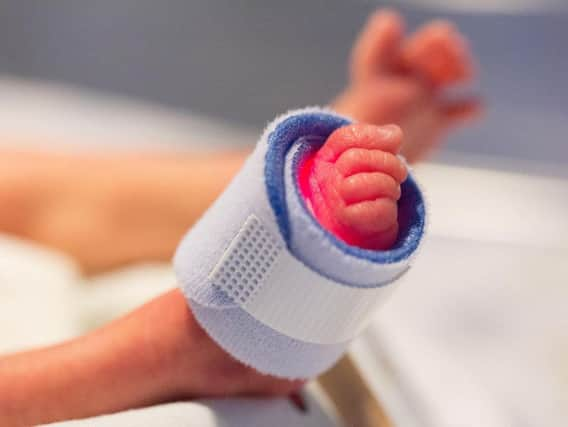NI baby MRSA death: Everything we we know so far


When did the baby die?
No specific date has been given but the outbreak and death occurred in the Royal Jubilee Maternity Hospital in Belfast over the summer.
What exactly happened?
The precise details are not yet known however it has been reported that MRSA was not a direct cause of the baby's death but both are connected in some way.
Were any other babies affected?
Advertisement
Hide AdAdvertisement
Hide AdYes. A second baby found to have the same strain of the virus as the deceased baby has since recovered.
What happens now?
The Belfast Health and Social Care Trust is currently conducting an investigation.
What is MRSA?
It stands for meticillin-resistant Staphylococcus aureus and has been referred to as a superbug.
MRSA is a type of bacteria that's resistant to several widely used antibiotics. This means infections with MRSA can be harder to treat than other bacterial infections.
Advertisement
Hide AdAdvertisement
Hide AdMRSA infections mainly affect people who are staying in hospital. They can be serious, but can usually be treated with antibiotics that work against MRSA.
How do you get MRSA?
MRSA lives harmlessly on the skin of around 1 in 30 people – usually in the nose, armpits, groin or buttocks. This is known as "colonisation" or "carrying" MRSA.
You can get MRSA on your skin by:
- touching someone who has it
- sharing things like towels, sheets and clothes with someone who has MRSA on their skin
- touching surfaces or objects that have MRSA on them
Getting MRSA on your skin won't make you ill, and it may go away in a few hours, days, weeks or months without you noticing. But it could cause an infection if it gets deeper into your body.
Advertisement
Hide AdAdvertisement
Hide Ad- People staying in hospital are most at risk of this happening because:
- they often have a way for the bacteria to get into their body, such as a wound, burn, feeding tube, drip into a vein, or urinary catheter
- they may have other serious health problems that mean their body is less able to fight off the bacteria
- they're in close contact with a large number of people, so the bacteria can spread more easily
Advertisement
Hide AdAdvertisement
Hide AdHealthy people (including children and pregnant women) aren't usually at risk of MRSA infections.
What are the symptoms of MRSA?
Having MRSA on your skin doesn't cause any symptoms and doesn't make you ill. You won't usually know if you have it unless you have a screening test before going into hospital.
If MRSA gets deeper into your skin, it can cause:
- redness
- swelling
- warmth
- pain
- pus
If it gets further into your body, it can also cause:
- a high temperature of 38C (100.4F) or above
- chills
- aches and pains
- dizziness
- confusion
Tell a member of staff if you get these symptoms while in hospital. Call your GP or NHS 111 if you get them outside of hospital.